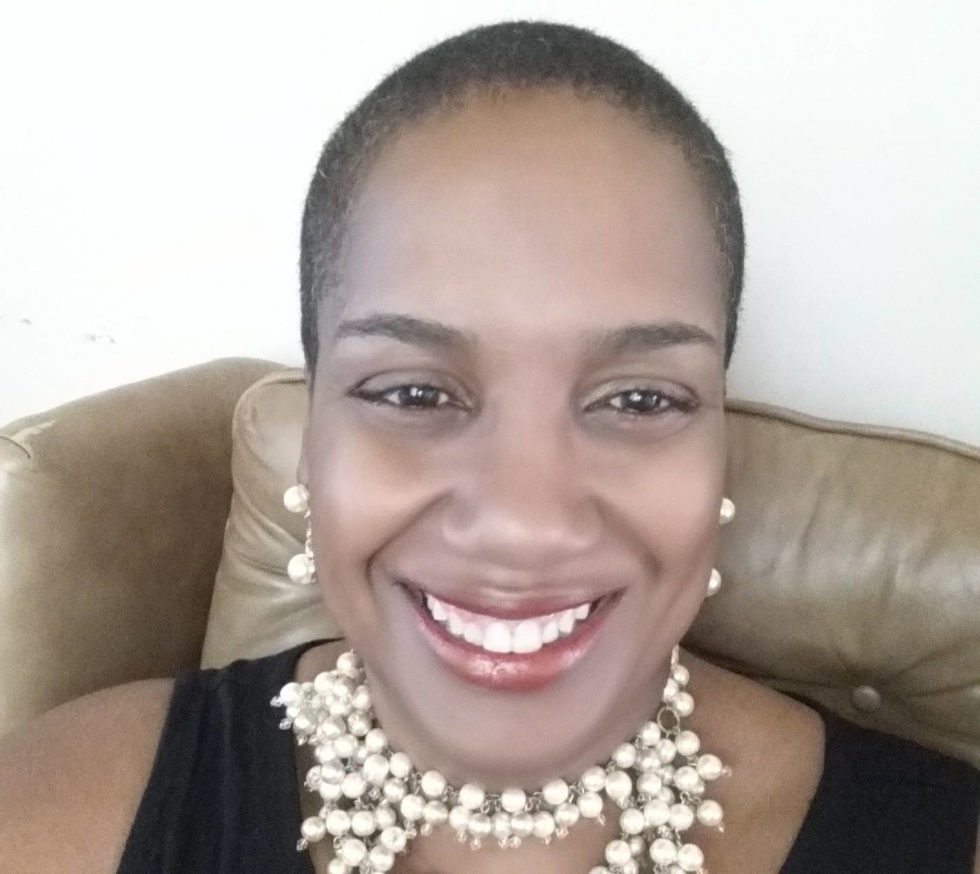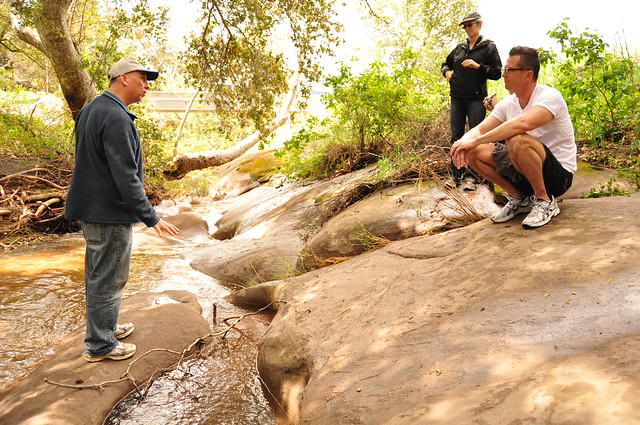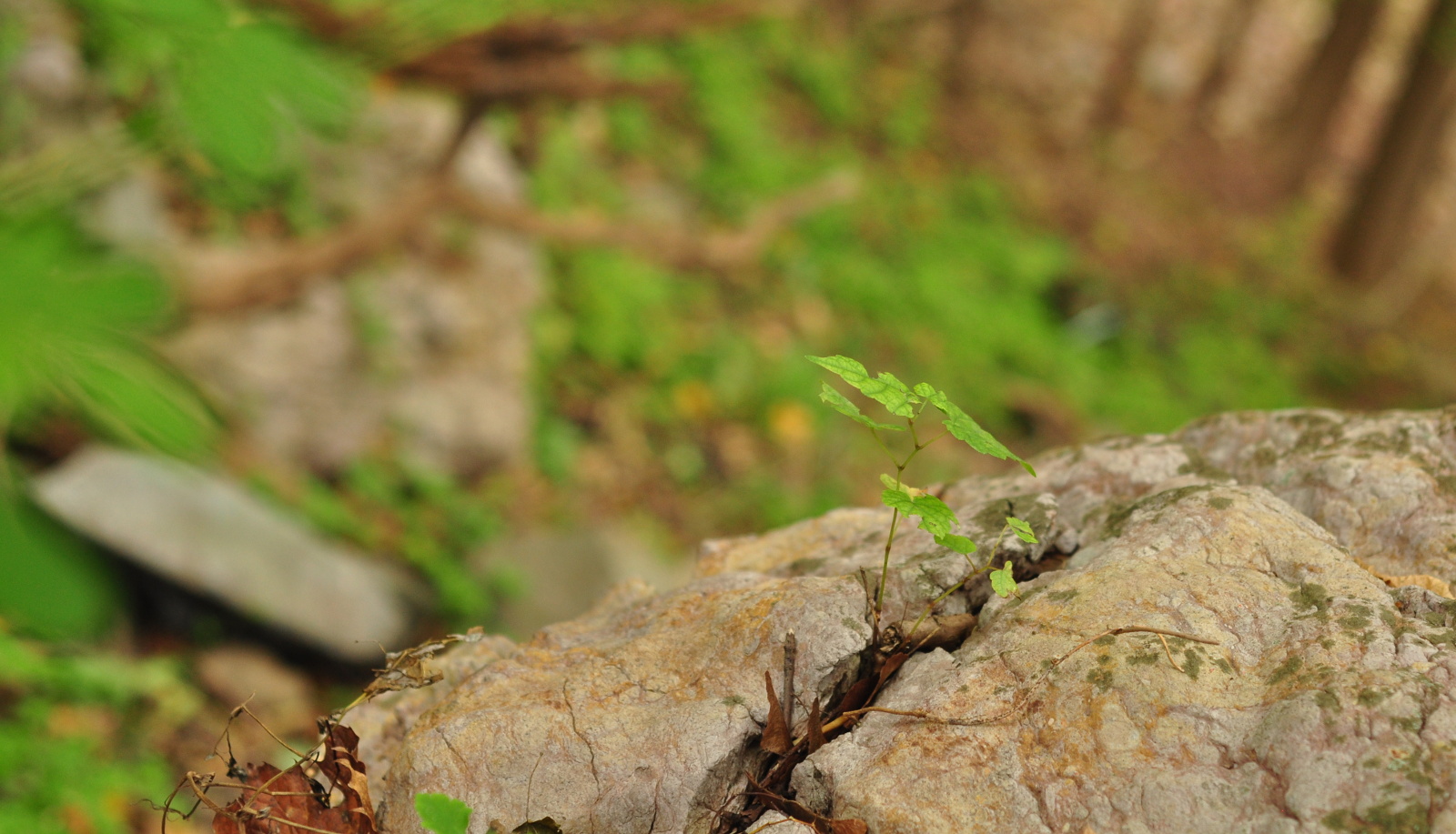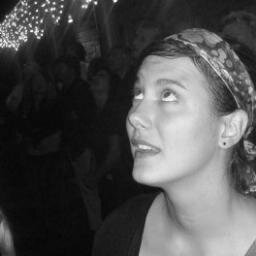“We did it in Detroit”: Working for racial justice in Mennonite Church USA is not done

This interview, originally published two years ago, was the eighth interview in my ongoing Anabaptist Camp Follower series in which I interview people who have been drawn to Anabaptism and Mennonites. Kelly Bates Oglesby is pastor at Park View Mennonite Church in Kokomo, Ind. Our interview happened before the massacre of nine Black Christians in Charleston on June 17. That act makes her words all the more important.
Can you share about your journey with Mennonite Church USA and becoming pastor at Parkview Mennonite Church?
As a requirement of my seminary study I needed to complete an internship in a faith community that was dissimilar from my own. As I perused the available openings I was drawn to one at First Mennonite Church in Indianapolis. The Mennonite setting was certainly dissimilar from my Free Will Baptist tradition even though both are Anabaptist in grounding.
Until I came to seminary and met Dr. Wilma Bailey, I had no personal interactions with Black Mennonites. My discussions with her and observations of her had piqued my interest. I submitted my application to First Mennonite Church and completed the process to become an intern. Unlike some learning sites, FMC wanted me to learn about the congregation and conference. Moreover, they allowed me to experience and experiment with ministry development.
During my initial year, I met weekly with the lead pastor to discuss theology and polity. Regular small group interactions helped me to learn to know the congregation. As part of my student work I initiated a project each semester to broaden the ecumenical witness of the congregation.
At the end of my first year, I was invited to complete my second internship year with the congregation. This was thrilling and concerning: I realized I was beginning to feel at home.
July 24, 2017 Anabaptist Camp Followers, Mennonite Church USA, Privilege, Race Read more >



 What does neo-Anabaptism mean to you?
What does neo-Anabaptism mean to you?
 Jarrod McKenna: The timing of my intro to Anabaptism was nothing short of God’s grace. It was a hugely significant time in my life though I was only 13 years old. Just before school started for my first year of high school, I made the very serious decision to follow Jesus. Up to that point I had gone through school not having the easiest time because of my dyslexia and ADD. I dealt with it by being the funny kid and when that didn’t work, beating kids up. I got good at both and was popular because of it. Yet the emptiness I felt would keep me up at night, looking up at the stars from my bedroom window and saying “God, if you’re there, I need you”. While some people have dramatic conversion experiences mine didn’t happen in a flash. But slowly my eyes opened to the Holy Spirit’s gentle work in my life. Night after night as the stars ministered to me I began to be sensitive to God’s love for me, and that love meant I could change, and follow Jesus.
Jarrod McKenna: The timing of my intro to Anabaptism was nothing short of God’s grace. It was a hugely significant time in my life though I was only 13 years old. Just before school started for my first year of high school, I made the very serious decision to follow Jesus. Up to that point I had gone through school not having the easiest time because of my dyslexia and ADD. I dealt with it by being the funny kid and when that didn’t work, beating kids up. I got good at both and was popular because of it. Yet the emptiness I felt would keep me up at night, looking up at the stars from my bedroom window and saying “God, if you’re there, I need you”. While some people have dramatic conversion experiences mine didn’t happen in a flash. But slowly my eyes opened to the Holy Spirit’s gentle work in my life. Night after night as the stars ministered to me I began to be sensitive to God’s love for me, and that love meant I could change, and follow Jesus.